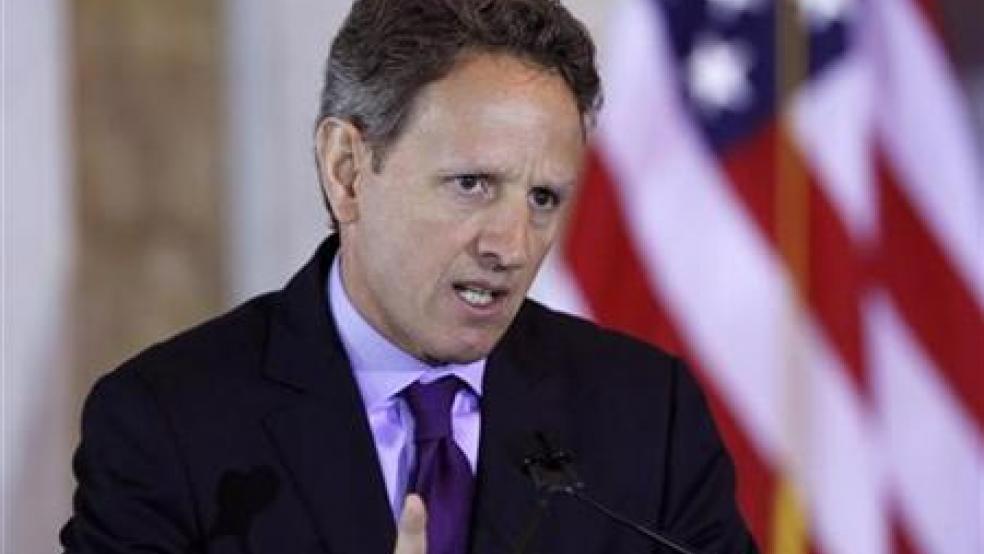NEW YORK (Reuters) - U.S. Treasury Secretary Timothy Geithner defended himself against criticisms that regulators should have taken bigger steps to address concerns over the credibility of the benchmark Libor interest rate, saying on Wednesday that U.S. authorities had pushed early and forcefully for reforms.
The reliability of the London interbank offered rate, which underpins transactions worth trillions of dollars, has been rattled by revelations that bankers manipulated it to profit on trades and hide their own borrowing costs during the 2007-09 financial crisis.
Britain's Barclays PLC is the only bank so far to admit any wrongdoing in giving false information as part of the complex process of setting the rate, but documents released last week indicate the practice may have been widespread during the financial crisis.
Geithner said that resolving problems with Libor would not be left just to British authorities and that the response to his suggestions for reform in 2008 "didn't go far enough."
"We acted very early in response to the concerns that the processes to set this rate were impaired and flawed, and vulnerable to misrepresentation," Geithner said at the CNBC Institutional Investor Delivering Alpha conference.
"The U.S., to its credit, set in motion at that stage a very, very powerful enforcement response, the first results of which we have now seen," he said.
"There is more to come," he added, but provided no details.
Geithner, then head of the New York Federal Reserve, sent an email to Bank of England Governor Mervyn King in June 2008, recommending six ways to enhance the credibility of Libor after Barclays had flagged concerns as early as 2007.
The BoE passed on Geithner's thoughts in an email to the British Bankers Association - the group responsible for Libor - which at that stage had already decided to start a review of the rate.
But few of Geithner's measures were adopted, and questions linger over what U.S. and UK regulators have done since then to fix the issues with Libor.
"They took some modest reforms in response to our suggestions in '08, but they didn't go far enough," Geithner said. "And we have now taken the initiative to set up a broader effort involving all the countries that matter around the world, that have a big stake in this, to try to make sure we push" for reforms.
King, governor of the BoE since 2003, dismissed accusations on Tuesday that he was asleep at the helm while Barclays traders tried to skew Libor. He said he would raise the issue of reform when he meets with fellow central bank governors from around the world in Basel, Switzerland, in September.
Libor is calculated daily in London when panels of banks submit estimates of how much it costs them to borrow. It is a major index that helps judge the health of banks and influences rates from mortgages to student loans to credit cards.
On Tuesday, Federal Reserve Chairman Ben Bernanke called the process "structurally flawed" and said he wanted to see changes.
More than a dozen banks are being investigated for their roles in setting Libor, including Citigroup Inc, JPMorgan Chase & Co, Deutsche Bank, HSBC Holdings Plc, UBS AG and Royal Bank of Scotland Group Plc.
Britain's Financial Services Authority is due to complete a review of how Libor should be regulated by the end of the summer, with changes expected to be inserted into a financial law currently before Parliament.
(Additional reporting by Svea Herbst-Bayliss; Editing by Lisa Von Ahn)


